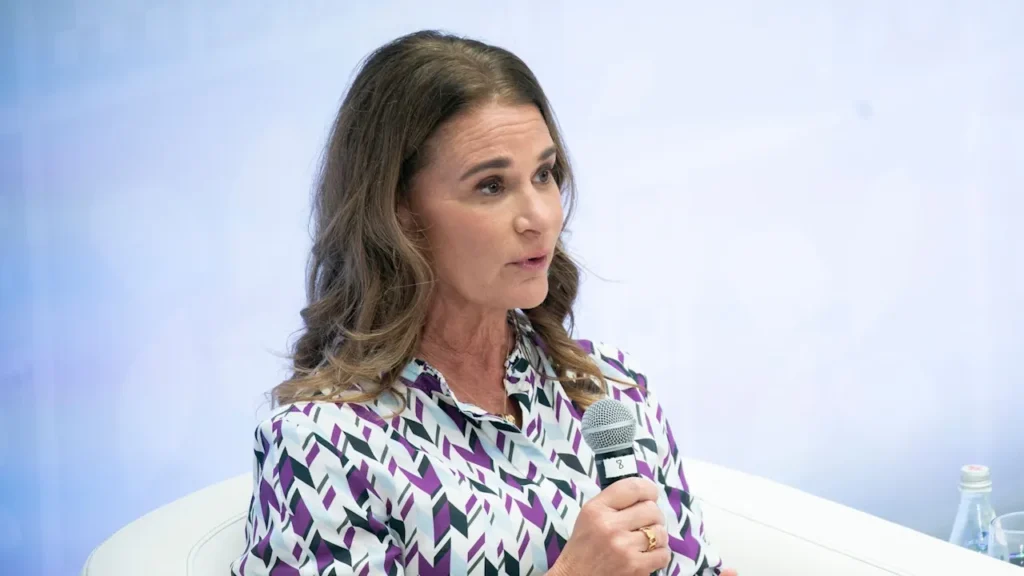
Melinda French Gates has been very busy since her divorce and subsequent departure from the Gates Foundation. For example, she launched her own venture, with $12.5 billion to put toward advancing causes she cares about, specifically those related to women and families. She has even gotten involved in politics, endorsing a candidate for the first time ever.
French Gates isn’t new to leading an organization, or to leading people. She has spent the past few decades leaving her imprint on what is arguably the most influential charitable organization in the world. Still, I imagine it can all get a little overwhelming at times. The key to managing it all isn’t to work constantly, according to French Gates. As counterintuitive as it might seem, one of the most important things is getting enough sleep.
In an interview with Vanity Fair, French Gates says she believes in the importance of getting seven or eight hours of sleep a night. She also had a few choice words for those who claim they don’t need to sleep more than a few hours a night, something she says is “so dumb.”
You can probably imagine the type. At some point, it became a weird sort of flex to suggest that you didn’t need sleep. It was as though sleeping was considered some kind of weakness. Instead, there is a type of leader who seems to think working all the time is a strength.
Elon Musk, for example, has claimed that working long hours was necessary to run his companies. While Musk now says he tries to get at least six hours of sleep, there are a number of instances where he talked about working more than 120 hours a week and sleeping on the factory floor for a few hours at a time. The same goes for Indra Nooyi, the former CEO of Pepsi, who has said she only needs four hours of sleep.
I guess you could argue that if you aren’t sleeping, you could be using that time to be productive. The problem is, that’s almost never how it works.
Working excessive hours is not a virtue. It might feel like a badge of honor, but it rarely amounts to better outcomes. Sleeping less doesn’t make you stronger or more productive; it just makes you more tired. And tired people almost never perform as well as they could with a good night’s sleep.
Look, I am definitely a morning person. I prefer to get up pretty early because it’s when I’m most productive, but that doesn’t mean I don’t need any sleep. It means I need to plan accordingly and go to bed early enough to get seven hours of sleep.
In fact, I’ve argued on a number of occasions that the single best thing you can do to be more productive is to get enough sleep. It turns out, science agrees with me, and with French Gates.
The Centers for Disease Control has said that most adults need at least seven hours of sleep. In fact, some scientific studies have suggested that sleeping for only four hours a night is just as bad for your body and your mind as not sleeping at all.
The consequences for not sleeping aren’t just that you’re ready to doze off by the fourth meeting of the day. Lack of sleep can contribute to real health issues like stress, anxiety, heart disease, and diabetes.
The CDC also says that almost 40 percent of adults don’t get enough sleep, defined as fewer than six hours. That’s a lot of tired, stressed-out people not performing at their best.
The lesson here seems really simple: You should make it a priority to get enough sleep. You’ll be far more productive when you show up to work rested and energized. If you lead an organization or a team, you owe it to your people to be at your best. If you think you can be at your best by working constantly without taking time to rest and—more specifically—to sleep, well, French Gates has a few words for you.
Like this column? Sign up to subscribe to email alerts and you’ll never miss a post.
—Jason Aten
This article originally appeared on Fast Company‘s sister publication, Inc.
Inc. is the voice of the American entrepreneur. We inspire, inform, and document the most fascinating people in business: the risk-takers, the innovators, and the ultra-driven go-getters that represent the most dynamic force in the American economy.


